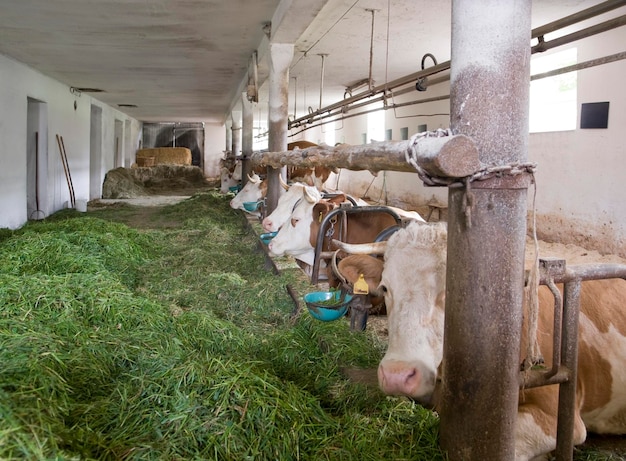Botswana’s livestock sector has long been a cornerstone of the country’s economy, contributing significantly to rural development, food security, and export revenue. With a vast amount of arable land and a long-standing tradition of animal husbandry, the livestock industry in Botswana offers numerous opportunities for entrepreneurs to tap into. From cattle farming to the growing demand for processed meat, there are plenty of ways to get involved in this thriving sector.
In this article, we will explore the key opportunities in Botswana’s livestock sector, the challenges involved, and how you can start your own business in this vital industry.
Overview of Botswana’s Livestock Sector
Botswana has a well-established livestock industry, with cattle being the primary focus. The country’s livestock sector is one of the largest in southern Africa, supported by a vast grazing land area and a favorable climate for cattle farming. In addition to cattle, Botswana is also known for small-scale farming of sheep, goats, poultry, and pigs.
The livestock industry plays a significant role in Botswana’s economy. According to the Botswana Agriculture Marketing Board (BAMB), the sector contributes approximately 2% to the country’s GDP and provides livelihood opportunities for thousands of rural families. The government has also recognized the sector’s potential and provides support in areas like veterinary services, research, and infrastructure development.
Key Opportunities in Botswana’s Livestock Sector
1. Cattle Farming and Beef Production
Cattle farming is the backbone of Botswana’s livestock industry, with beef being the most significant product exported to regional and international markets. Botswana’s beef is highly regarded for its quality, with strict regulations ensuring disease-free status.
Opportunities:
- Commercial Cattle Farming: Entrepreneurs can invest in large-scale cattle farming operations, producing beef for both domestic and export markets. Given the demand for quality beef in countries like the European Union and South Africa, commercial cattle farming is a lucrative option.
- Sustainable Farming Practices: With an increasing demand for ethically sourced and sustainably produced beef, entrepreneurs can differentiate themselves by adopting eco-friendly practices, such as rotational grazing and organic feed.
- Feedlot Operations: This involves the confinement of cattle for fattening before slaughter. Feedlot operations are increasingly important in the beef production process, as they can significantly increase beef yields.
2. Goat and Sheep Farming
Goat and sheep farming in Botswana is becoming increasingly popular due to the growing demand for mutton and goat meat, both domestically and in regional markets.
Opportunities:
- Small-Scale Goat Farming: Many smallholder farmers in Botswana engage in goat farming, and there is a rising demand for goat meat in local and international markets. This presents opportunities for both intensive and free-range goat farming.
- Breeding Programs: Entrepreneurs can tap into breeding high-quality goats and sheep for sale, either for meat production or for improving the quality of the existing herd.
- Export of Goat Meat: As demand for goat meat continues to rise in both local and international markets (including the Middle East), there are significant export opportunities for entrepreneurs involved in goat farming.
3. Poultry Farming
The poultry sector in Botswana has seen steady growth, driven by the increasing demand for chicken meat and eggs. Poultry farming offers relatively low startup costs and fast returns, making it an attractive option for entrepreneurs.
Opportunities:
- Broiler Farming: Entrepreneurs can invest in broiler farming, focusing on meat production for local consumption and export. The demand for chicken meat is growing, and there is room for more production to meet local needs.
- Egg Production: Egg farming is another profitable sub-sector, with eggs being an essential staple in many households across Botswana.
- Value-Added Products: Beyond just selling chicken and eggs, there is room for value-added poultry products such as processed chicken (e.g., sausages, nuggets), which can command higher prices.
4. Dairy Farming
Dairy farming in Botswana has the potential for significant expansion, with a growing local demand for milk and dairy products such as cheese, yogurt, and butter. Although there is a small dairy industry in Botswana, there is still room for growth.
Opportunities:
- Milk Production: Entrepreneurs can establish dairy farms, either small-scale or large-scale, to meet the rising demand for fresh milk and other dairy products.
- Dairy Processing: In addition to milk production, there is an opportunity in processing dairy into value-added products like cheese, yogurt, butter, and cream, which can be sold locally or exported.
- Organic and Specialized Dairy Products: With the global trend towards organic and healthier food options, offering organic dairy products could be a niche opportunity for entrepreneurs in Botswana.
5. Veterinary Services and Animal Healthcare
As the livestock industry continues to grow, there is an increasing need for veterinary services, including animal healthcare, disease prevention, and diagnostic services. Veterinary services are essential for ensuring the health and productivity of livestock.
Opportunities:
- Mobile Veterinary Clinics: Starting a mobile veterinary business that travels to farms to provide essential animal healthcare services is a growing niche. Mobile clinics allow for convenient, on-site services for farmers, particularly those in remote areas.
- Animal Nutrition: Providing high-quality feed and supplements for livestock is another opportunity, as proper nutrition is critical to maximizing production and minimizing disease in farm animals.
- Livestock Insurance: With the growing value of livestock, there is an emerging opportunity to provide livestock insurance services to farmers, which can help mitigate risks associated with disease outbreaks or natural disasters.
6. Livestock Processing and Meat Export
The processing and export of meat is a significant opportunity in Botswana’s livestock sector. Botswana’s beef is well-known internationally, particularly in the EU market, and there is potential to expand this sector.
Opportunities:
- Abattoir Operations: Entrepreneurs can invest in establishing abattoirs (slaughterhouses) that process cattle, sheep, goats, and poultry. With the proper certifications and licenses, meat can be processed for local and export markets.
- Meat Export: Given Botswana’s reputation for high-quality beef, there is great potential in expanding meat exports to international markets. Additionally, poultry and goat meat exports can be explored.
- Halal Meat Processing: With a growing Muslim population in various regions, processing halal meat is a niche market that entrepreneurs can tap into.
7. Livestock Waste Management
Livestock farming produces a significant amount of waste, which can be an environmental concern. However, with proper management, livestock waste can be used as a valuable resource.
Opportunities:
- Composting and Fertilizer Production: Livestock manure can be processed into organic fertilizers and sold to farmers, or it can be used in the production of biogas, providing an eco-friendly energy source.
- Biogas Production: By setting up a biogas facility, entrepreneurs can convert livestock waste into renewable energy, which can be used for electricity production or heating.
Key Challenges in Botswana’s Livestock Sector
While the livestock sector offers numerous opportunities, entrepreneurs should be aware of several challenges:
- Water Scarcity: Botswana is a semi-arid country, and water scarcity can be a challenge for livestock farming, particularly in areas with limited access to water resources.
- Disease Management: Livestock diseases such as foot-and-mouth disease (FMD) and tick-borne diseases can impact production and lead to heavy losses. Ensuring proper veterinary care and biosecurity measures is crucial.
- Market Access and Logistics: Accessing both local and international markets for livestock products can be challenging due to infrastructure and transport issues, particularly in rural areas.
The livestock sector in Botswana offers vast opportunities for entrepreneurs interested in entering the agriculture and farming industries. With the country’s favorable conditions for cattle, goat, sheep, poultry, and dairy farming, along with the increasing demand for meat, dairy, and value-added products, Botswana’s livestock industry is ripe for investment. By addressing the sector’s challenges and leveraging the opportunities available, entrepreneurs can build successful and profitable businesses that contribute to the growth of Botswana’s economy.





